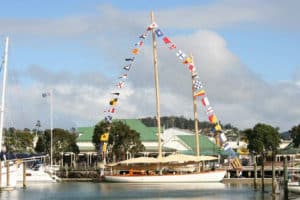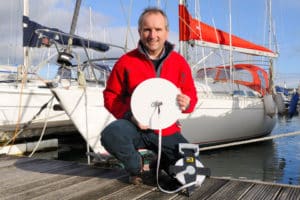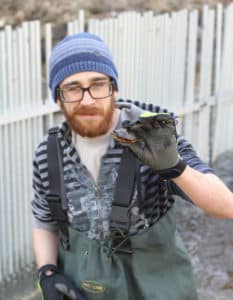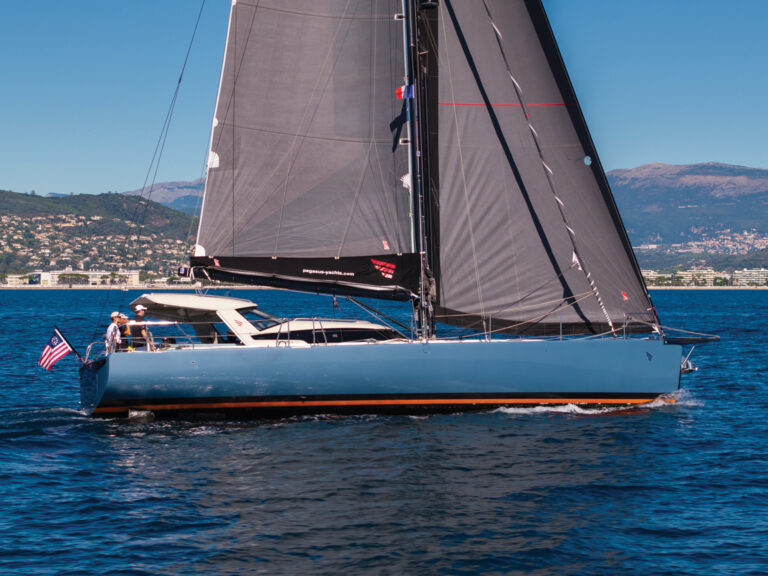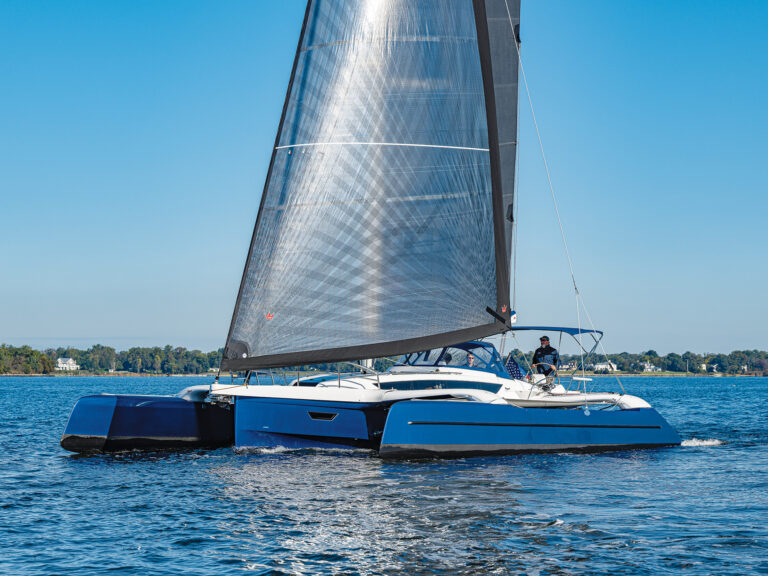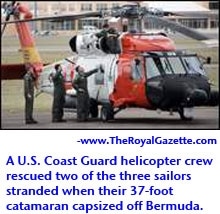
AtSeaBermudaRescue
Two sailors are lucky to be alive after their 37-foot catamaran capsized February 19 about 200 miles east of Bermuda. The boat’s skipper-a British man said to be in his 50s-wasn’t so lucky. After succumbing to hypothermia, he became delirious, unclipped his life preservation device, fell into unconsciousness, and died.
His crew, who had fastened themselves to the overturned boat with their life jackets, clung to the captain’s body after he died. He eventually slipped from their grasp, however, amid 40-knot winds and 30-foot seas.
The crew of Haley, the doomed boat, sent a distress call after 1700 on Monday. About three hours later, a U.S. Coast Guard C-130 rescue aircraft from Air Station Elizabeth City in North Carolina, arrived at the scene. In the horrendous conditions, the victims then had to wait several more hours for a helicopter with winching equipment to arrive.
Around 0100, the helicopter arrived, and rescue member Michael Ackerman swam to the catamaran, rescued one sailor, hauled him to safety in a steel basket that was attached to the helicopter, and repeated the maneuver with the second sailor.
The helicopter carried the sailors, both suffering from exhaustion and hypothermia, to Bermuda, where they were rushed to a hospital, and remain in stable condition. Teams continued to hunt for the body of the deceased skipper, but the search was called off at sunset Tuesday.
The boat was reported to be on a voyage from France, via Madeira, bound for Annapolis, Maryland. The cause of the accident is unknown at this time, but Lieutenant Commander Adam Kerr said the ocean is “a very dangerous place to be. It can go from very tranquil to very nasty in a short period of time. That’s probably what happened to them.”
Coast Guard members say the men would have stood no chance of survival had they not been equipped with EPIRB beacons, which instantly notified the rescue team via satellite of their exact location.
Lieutenant Peter Evonuk, pilot of the first C-130 to reach the scene, said, “Those EPIRBS saved their lives. The searching is the hard part of our job. If we know where you are, we will find you. We flew right to these guys because of their EPIRBS. If you are a sailor, have an EPIRB.”

